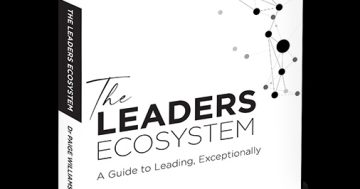Dr Paige Williams* discusses the importance of instilling a culture of accountability in teams – before things go wrong.
 Too often accountability is looked at through the lens of people asking for it – accountors – rather than the people being asked to deliver on it – accountees.
Too often accountability is looked at through the lens of people asking for it – accountors – rather than the people being asked to deliver on it – accountees.
The problem is defined as ‘we just need people to be more accountable,’ but that’s rarely the central issue.
And the problem is…
The problem is, accountability is usually what gets discussed when things are going wrong, rather than being addressed up front as a means of setting things up for success.
It’s this punitive view of accountability that holds leaders, teams and organisations back from boosting progress and performance.
Because what it triggers is fear.
There are two sides to the accountability coin, and each of them has different fears associated with it.
On one side of the coin is the role of the person asking for accountability – the Accountor.
In this role, we can feel reluctant to hold people to account for fear of being seen as ‘the bad guy’ and being disliked.
Another risk of taking on this role is becoming the ‘odd one out’ and finding ourselves isolated in our workplace.
So, if you feel your boss or leader isn’t doing all they could to level up accountability in your team or with your peers, understand that this may be what’s driving it.
On the other side of the accountability coin is the role of the person being asked for accountability – the Accountee.
In this position, a lack of clarity and commitment to action can make us reluctant to ask what is expected of us for fear we may not like or be able to deliver on it.
And for those of us who typically take on too much, we may be unwilling to call out unrealistic accountability expectations for fear of losing face, status, or perhaps even our job.
So what can we do to be better at accountability?
Setting up for Success
Conversations about accountability can set us up for success, because they help to create a clarity of expectations that is shared between the person asking for accountability (accountor) and the person delivering on it (accountee).
As an accountee, there are four key areas to cover in order to gain greater clarity about the accountability expectations of you and raise concerns if necessary.:
1. Establish clear expectations
What does success look like – for you, for me, for us, for this project? How will we achieve this? What timeframe do I need to work towards?
2. Measure progress
How will we measure progress? How often shall we check in?
3. Ask for support
What support and/or whose help could I call on if needed, to make this possible?
4. Understand the consequences of meeting and missing expectations
Who is impacted/affected by this work? What are the consequences of this not unfolding as we’ve planned here?
Your opportunity to lead up
The reality is that your Accountor may not know how important this conversation is in setting you up for accountability success.
If they are not creating a dialogue with you by covering off questions along these lines with you, then it’s in your interest to initiate that dialogue with them.
So if you’re being asked for accountability and you’re feeling challenged, stressed or uncomfortable about it, try asking the questions that will provide you with the level of clarity and understanding you need to set you up for success.
Now that’s a smart way to lead up!
*Dr Paige Williams, author of Own It! Honouring and Amplifying Accountability is a researcher, PhD in Organisational Behaviour and trusted advisor to senior leaders. She can be contacted at drpaigewilliams.com.
This article first appeared at drpaigewilliams.com.











